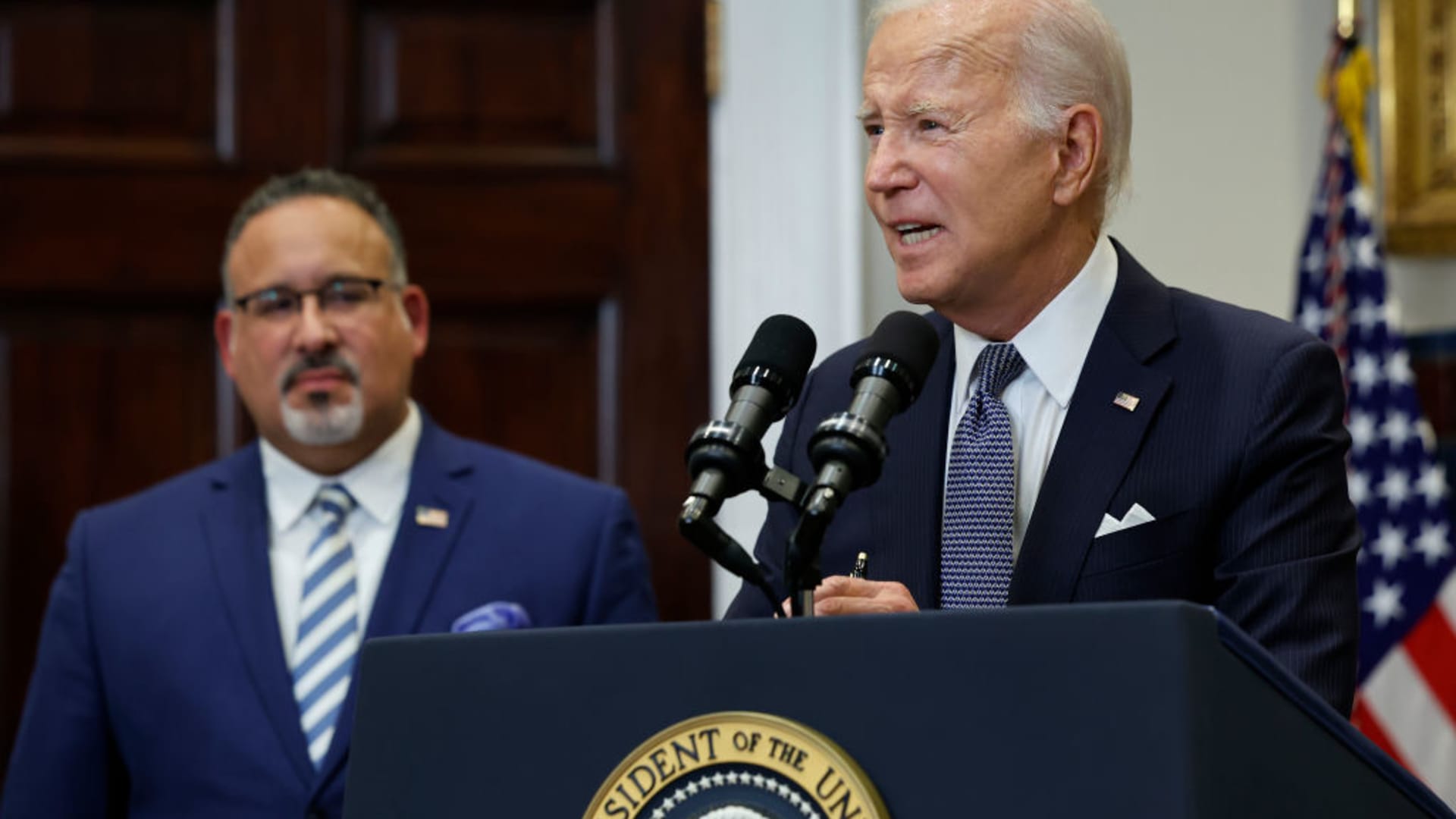Products You May Like
The Biden administration released new guidance Monday on how colleges can “lawfully achieve a diverse student body” in the wake of the Supreme Court’s ruling striking down affirmative action.
In a “Dear Colleague” letter and a questions and answers page, the U.S. Department of Education outlined what policies and practices for promoting a diverse student body remain legal after the Supreme Court decided that the consideration of race in college admissions violates the Equal Protection Clause of the U.S. Constitution and the Civil Rights Act of 1964.
“The resources issued by the Biden-Harris Administration today will provide college leaders with much-needed clarity on how they can lawfully promote and support diversity, and expand access to educational opportunity for all,” U.S. Secretary of Education Miguel Cardona said in a statement. “This is only the first step.”
More from Personal Finance:
Supreme Court strikes down student loan forgiveness plan
4 strategies to avoid taking on too much student debt
These moves can help you save big on college costs
The high court’s ruling was considered a massive blow to decades-old efforts to boost enrollment of minorities at American universities through policies that accounted for applicants’ race.
Experts predicted the Supreme Court’s ruling would encourage colleges to put more weight on students’ household income and their regional background to diversify their student bodies.
Schools may also rely less on standardized test scores or even eliminate SAT and ACT requirements, which have reinforced race gaps, other studies show.
Colleges can still consider personal essays about “how race affected his or her life, be it through discrimination, inspiration or otherwise,” Chief Justice John Roberts wrote in the ruling, even though “universities may not simply establish through application essays or other means the regime we hold unlawful today.”
The Education Department said it will release a report next month with additional details on how colleges can use other measures of adversity, including financial means, where a student grew up and went to high school, as well as personal experiences of hardship, including racial discrimination, in their admissions decisions.
Colleges are likely to add questions along these lines to their admissions applications, according to higher education expert Mark Kantrowitz, and more may also end the policy of giving preferential treatment to legacy students, which is increasingly under fire after the ruling on affirmative action.
Subscribe to CNBC on YouTube.
